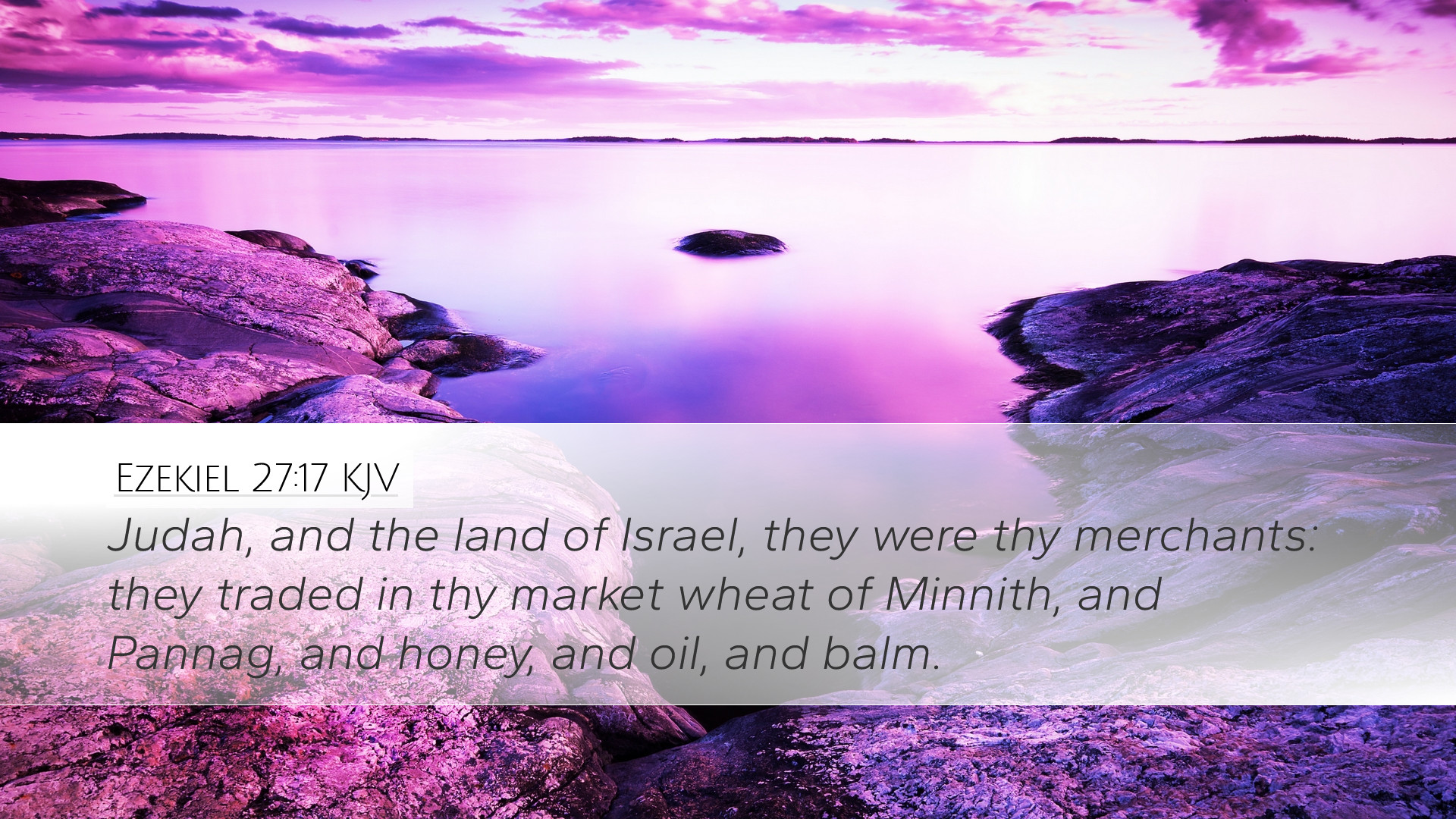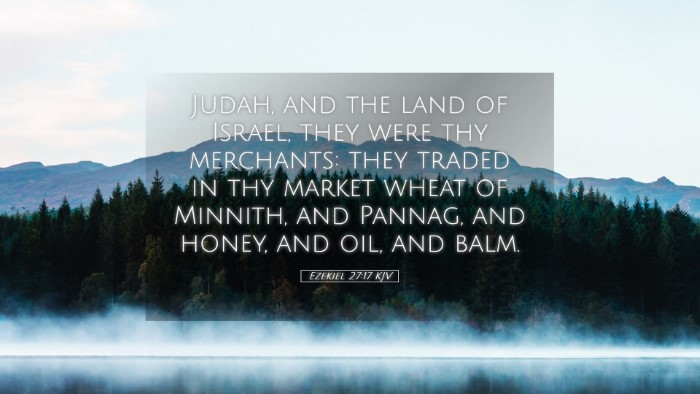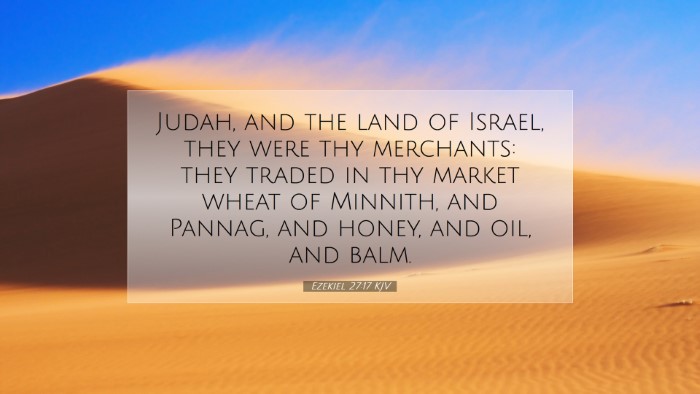Ezekiel 27:17 Commentary Summary
Verse: "Judah, and the land of Israel, they were thy merchants: they traded in thy market, wheat of Minnith, and pears, and honey, and oil, and balm."
Contextual Background
Ezekiel 27 is a part of a comprehensive lamentation over the fall of Tyre, symbolizing the downfall of a great commercial power. This verse pinpoints the significant role that Judah and Israel played within Tyre's vast trading network.
Insights from Commentators
Matthew Henry's Commentary
Tyre’s Commerce: Henry emphasizes the bustling trade of Tyre, noting how it was a hub for numerous nations. The mention of Judah and Israel highlights their involvement in this lucrative economy. Tyre's markets benefited from the agricultural wealth of these regions, which included excellent products like wheat and various fruits.
Theological Implications: The verse serves as a reminder of how nations can rise and fall based on God’s providence. The intertwining of Judah and Israel in Tyre's commerce suggests both economic interdependence and moral decline, as Tyre's trade practices often included idolatry and immorality.
Albert Barnes' Notes
Judah and Israel’s Role: Barnes points out that the names of Judah and Israel signify the divided kingdoms, yet reflect a unified identity when engaging in trade. This economic link illustrates the broader alliances made in the ancient Near East and their reliance on external trade for survival.
Details of the Trade: The specific commodities mentioned – wheat, pears, honey, oil, and balm – indicate the richness of the lands. Wheat of Minnith was known for its quality, while the mention of balm and honey suggests a flourishing agrarian culture in Judah and Israel, which fed into the global marketplace represented by Tyre.
Adam Clarke's Commentary
Symbolism of Trade: Clarke interprets the products traded as significant not only for their economic value but also for their cultural symbolism. Wheat represents sustenance and life, pears and honey signify sweetness, while oil and balm denote healing and anointing. This diversity showcases the prosperity of God’s people and their blessings.
Historical Context: Clarke highlights the historical background of these trade relations, asserting that such interactions were vital for both spiritual and economic health. He elaborates on how the downfall of Tyre serves as a warning about reliance on worldly systems rather than on God, reflecting on the eventual consequences of their idolatrous practices.
Application for Today
-
Economic Relationships: The dynamics within Ezekiel 27:17 encourage contemporary readers, especially pastors and theologians, to consider how local and global economies interact today and the ethical implications of these relationships.
-
Divine Provision: The mention of agricultural bounty reminds believers of God’s provision. It prompts reflection on how dependence on God sustains not only physical needs but also spiritual growth.
-
Moral Integrity in Commerce: The intricate ties between trade and moral choices in this verse challenge modern Christians in business. The narrative warns against compromising faith for profit, emphasizing that the ultimate allegiance must remain with God.
Conclusion
Ezekiel 27:17 serves as a powerful reminder of the interconnectedness of faith, economy, and morality. By combining insights from various public domain commentaries, readers are encouraged to delve deeper into the implications of this verse for both their spiritual and economic lives. It is not merely a historical account but a profound lesson about how individuals and nations should interact with one another, grounded in a proper relationship with God.


